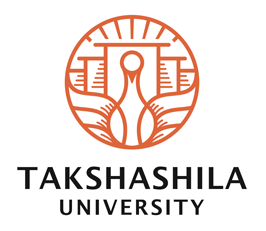If you have completed your undergraduate engineering degree and looking to study further, this question might sound relevant to you: MTech or MBA- Which is the better option after BTech?
Though you have successfully conquered the undergraduate degree, you find yourself at a crossroads, wondering which path to take next. Whether to dive into the technical realm with an MTech or venture into the business world with an Master of Business Administration MBA.
This blog will help you navigate through your dilemma and help you make an informed decision on choosing MTech or MBA. Let’s start and find out if you will be a tech genius or a business maverick!
Why Should You Do A Postgraduate Degree?
One might wonder that BTech is a 4-year degree and what’s the point in doing a master’s degree for another two years. Here’re the reasons stated by the experienced faculties of Takshashila University on why you should do a postgraduate degree.
- Expertise: Specialisation and in-depth knowledge in your field of study
- Competitive advantage: Increased career prospects and increased employability
- Career advancement: Opportunity to get employed directly in senior-level positions
- Professional connections: Building a strong network in your field
- High earning potential: Better-paying job opportunities
- Immense exposure: Global opportunities for international career prospects
- Lifelong learning mindset: Keep up with evolving technologies and industry trends throughout your career
- Employer-valued skills: Development of advanced skills and abilities
MTech or MBA: Differences
Here’s comparison chart highlighting the key differences between an MBA and MTech program.
| Criteria | MBA | MTech |
| Focus | MBA is a business degree focusing on management and leadership positions. | MTech is a technical degree focused on a particular field of engineering and technology. |
| Duration | The duration for MBA is typically two years. | The duration for MTech generally is two years. |
| Eligibility | Bachelor’s degree in any discipline | Bachelor’s degree in engineering (BE or BTech) |
| Entrance Exam | State and National-level exams like GMAT, CAT, and GRE and other specific institute-level entrance exams | GATE and other specific institute-level entrance exams |
| Disciplines Covered | Some disciplines of MBA are, – Finance – Marketing – Human Resources Management – Operations Management – Strategy – Entrepreneurship – International Business – Leadership and Organizational Behavior -Managerial Economics – Business Analytics, etc. | Some disciplines in MTech are, – Computer Science – Electrical – Mechanical – Civil – Chemical – Aerospace – Biotechnology and Bioengineering – Environmental – ECE – Materials Science and Engineering, etc. |
| Job Roles | MBA graduates get into managerial, strategic, consulting and entrepreneurship roles | MTech graduates get into technical, research and development, academia and engineering roles |
| Industry Relevance | Across various universities, includingFinanceHealthcareTechnology, etc. | Technical Industries such asEngineeringManufacturingITR&D organisations |
| Personal Growth | Leadership development and business acumen | Specialised technical knowledge and research skills |
Pros And Cons Of Doing an MBA After Engineering
Here’re the pros and cons of doing an MBA after engineering for your complete understanding to make a suitable decision.
| Advantages of doing an MBA after engineering | Disadvantages of doing an MBA after engineering |
| 1. Opens up opportunities for management and leadership jobs 2.Assists in developing critical business skills such as strategic thinking, finance, marketing, and entrepreneurship. 3. Increases the opportunity to effectively network with industry experts and alumni, thus expanding career connections 4. Provides a comprehensive view of business operations and decision-making. 5. Provides excellent earning potential and prospects | 1. Additional time and financial investment 2. Limited opportunities in technical roles 3. Competitive job market, requiring solid differentiation to stand out from other candidates 4. For students with an engineering background, MBA requires additional effort to bridge knowledge gaps 5. MBA program can be challenging |
Pros And Cons Of Doing MTech After Engineering
Here’re the pros and cons of doing an MTech after engineering for your complete understanding to make a suitable decision.
| Advantages of doing MTech after engineering | Disadvantages of doing MTech after engineering |
| 1. Increases technical knowledge and expertise in the chosen field of speciality 2. Provides opportunities for advanced research and innovation 3. Provides a strong earning potential and a larger work market demand 4. Opportunities for advancement to leadership and higher-level jobs 5. Serves as a collaborative platform for industry professionals and experts | 1. Limited exposure to business and managerial skills Delayed career progression 2. Research-oriented work may not be suitable for all individuals 3. Limited job market for highly specialised roles 4. Requires strong commitment to academic study and research |
Factors To Consider When Choosing Between an MBA And MTech
Here’re the factors to consider before deciding on the discussion MTech Vs MBA- Which is the better option after BTech?
| Factors | MBA | MTech |
| Career aspirations | If you are interested in leadership roles and business management, you should opt for an MBA. | If you are interested in specialised technical and engineering roles, you should opt for an MTech. |
| Skill development | If you want to upskill in business and management, you should opt for an MBA. | If you want to upskill in technical knowledge and research and development, you should opt for an MTech. |
| Industry demands | Versatile opportunities | Primarily in technical and engineering sectors |
| Personal interests | If you have an interest in business and entrepreneurship, you should opt for an MBA. | If you have a passion for engineering and technical specialisation, you should opt for an MTech. |
| Financial Considerations | Higher tuition fees; high potential for earning much | Lower tuition fees; high potential for earning in specialised technical roles |
| Networking opportunities | Chances to connect with business and industry professionals | Chances to collaborate with experts in technical and research fields |
| Time commitment | 2 years, either full-time or part-time | 2 years, either full-time or part-time |
Making An Informed Decision
After analysing the pros and cons of MBA and MTech programmes and considering the factors, you can make an informed decision that helps for the success of your career. Here’s the checklist to tick to ensure you have chosen the suitable path for yourself.
- Does this program align with my long-term career goals?
- Does this course align with my passion, strengths and skills?
- Does this program has growth potential and offers job opportunities?
- Do I have financial resources to support the chosen path?
- Does this program help with my professional and personal growth?
- Am I interested in pursuing this course at any cost and taking up the challenges as a step to success?
Why Should Takshashila University Be Your Study Destination?
Takshashila University is spread over 150 acres of land, showcasing its architectural marvel. It has UG and PG programs and covers departments like Engineering, Arts & Science, Agricultural Science, Physiotherapy and Allied Health Sciences.
It provides students with state-of-the-art facilities, such as learning resources, recreation clubs, sports complexes, ATMs, Wi-Fi connectivity, a cafeteria, hostel, gym, library, labs, auditoriums, etc.
With 63 degree programmes and 100% campus placements, Takshahsila University sails with the mission of creating leaders of tomorrow. It gives students a quality education with a hands-on approach, making them work on real-time projects, thus preparing them for real-world jobs.
By pursuing MBA or MTech program at Takshahsila, you can succeed in your career by getting placed in your dream company. It also provides academic and sports scholarships for its postgraduate programs.
Conclusion
In the discussion, M.Tech Vs MBA – Which is a better option after B.Tech, the ultimate decision depends on an individual’s circumstances, career aspirations and personal preferences.
It is important to note that both MBA and MTech programs offer unique advantages and opportunities for growth. Through a thorough self-assessment and consideration of the factors listed, one can choose a path maximising their future.
FAQs
1). What is the scope of an MBA after engineering?
An MBA after engineering offers vast opportunities. MBA graduates can pursue managerial jobs in various industries, apply their technical competence in entrepreneurship and innovation, succeed in management consulting, and aspire to leadership and executive leadership positions.
2). Who gets paid more, MBA or MTech graduates?
MBA graduates are likely to earn more than MTech because they are versatile in job roles and opportunities. However, MTech graduates may also get a high salary if they specialise in high-demand and emerging fields such as data science, artificial intelligence, etc.
3). Which branch of MBA is in demand?
Graduates’ most sought-after MBA specialisations are Finance, Business Analytics, Marketing, HR, Operations and Entrepreneurship. These specialisations are in-demand and considered the best for the future.
4). Why is Takshahsila University the best university for postgraduate programs?
Takshashila University’s commitment to academic excellence, emphasis on research and development, strong industry partnerships and quality placements, state-of-the-art infrastructure and technological resources, excellent faculties and the institute’s focus on holistic development of students make it the best university for postgraduate programs.
5). What postgraduate programs are available at Tashashila University after completing engineering?
At Takshashila University, MCA, MBA, MTech, and PhD programs are available for students who have completed their undergraduate engineering degrees.




